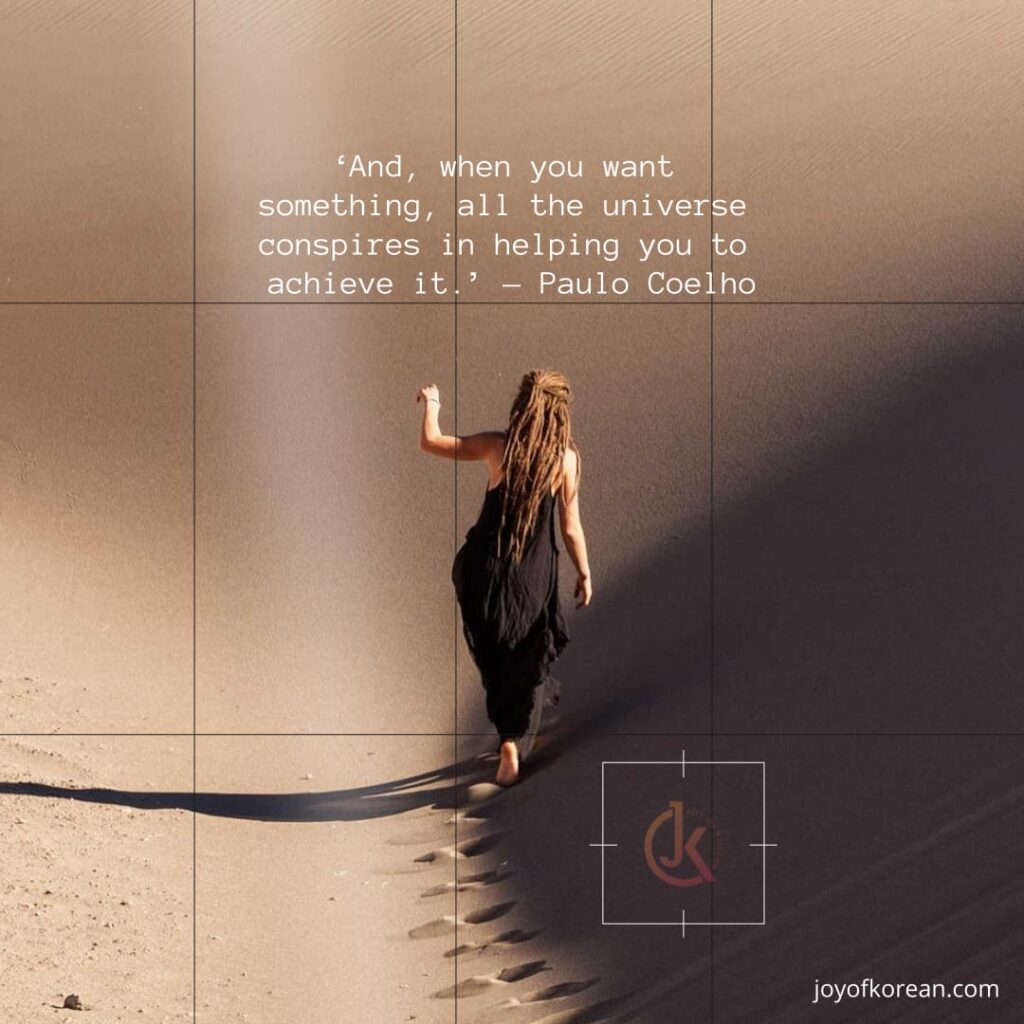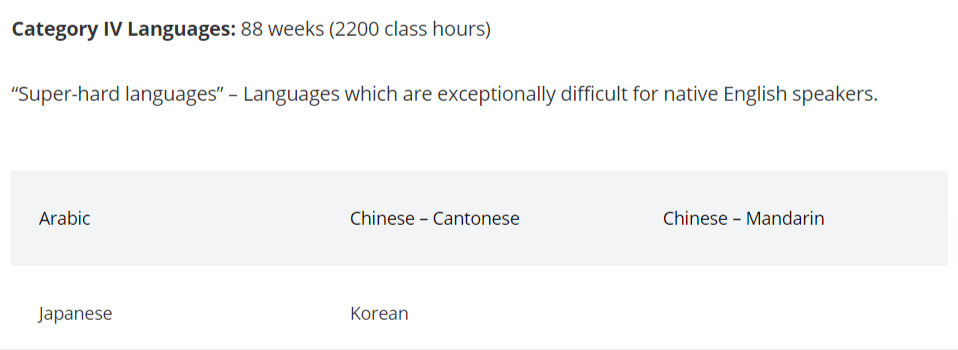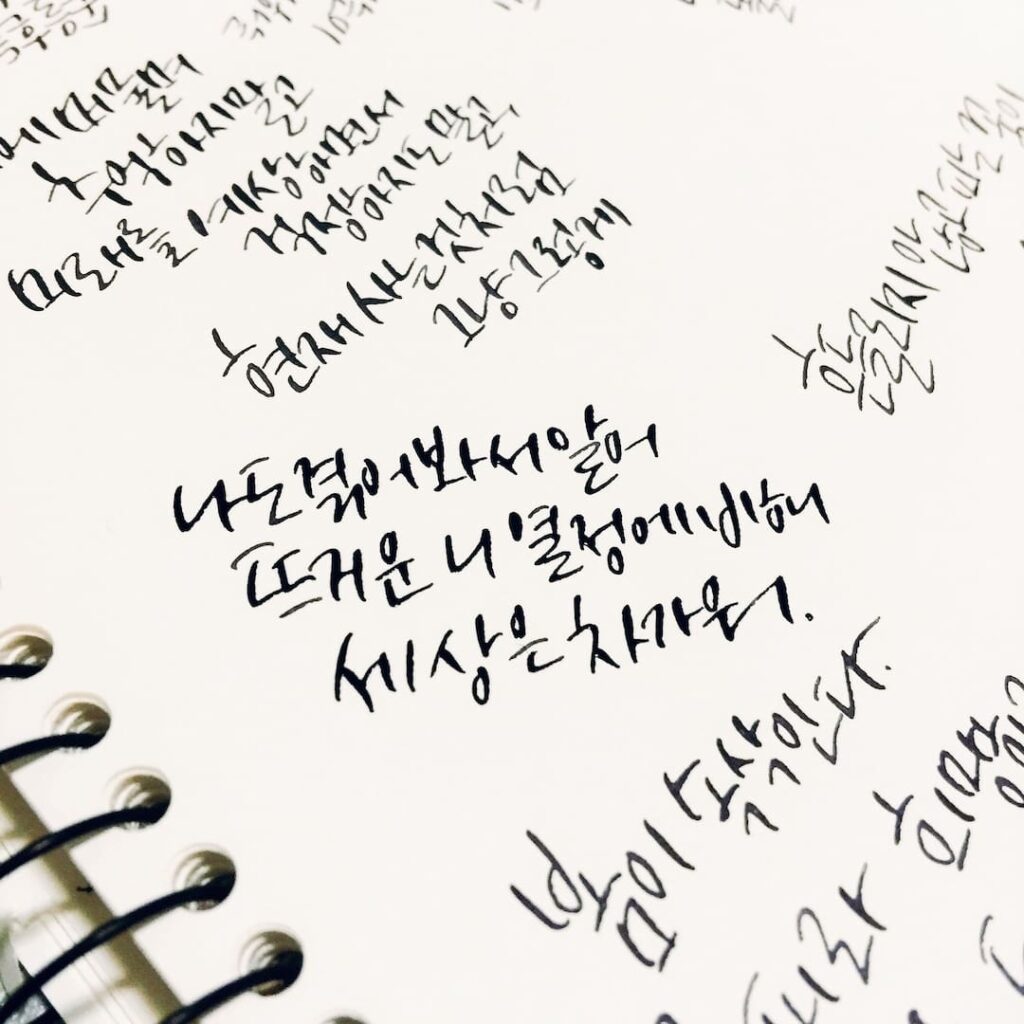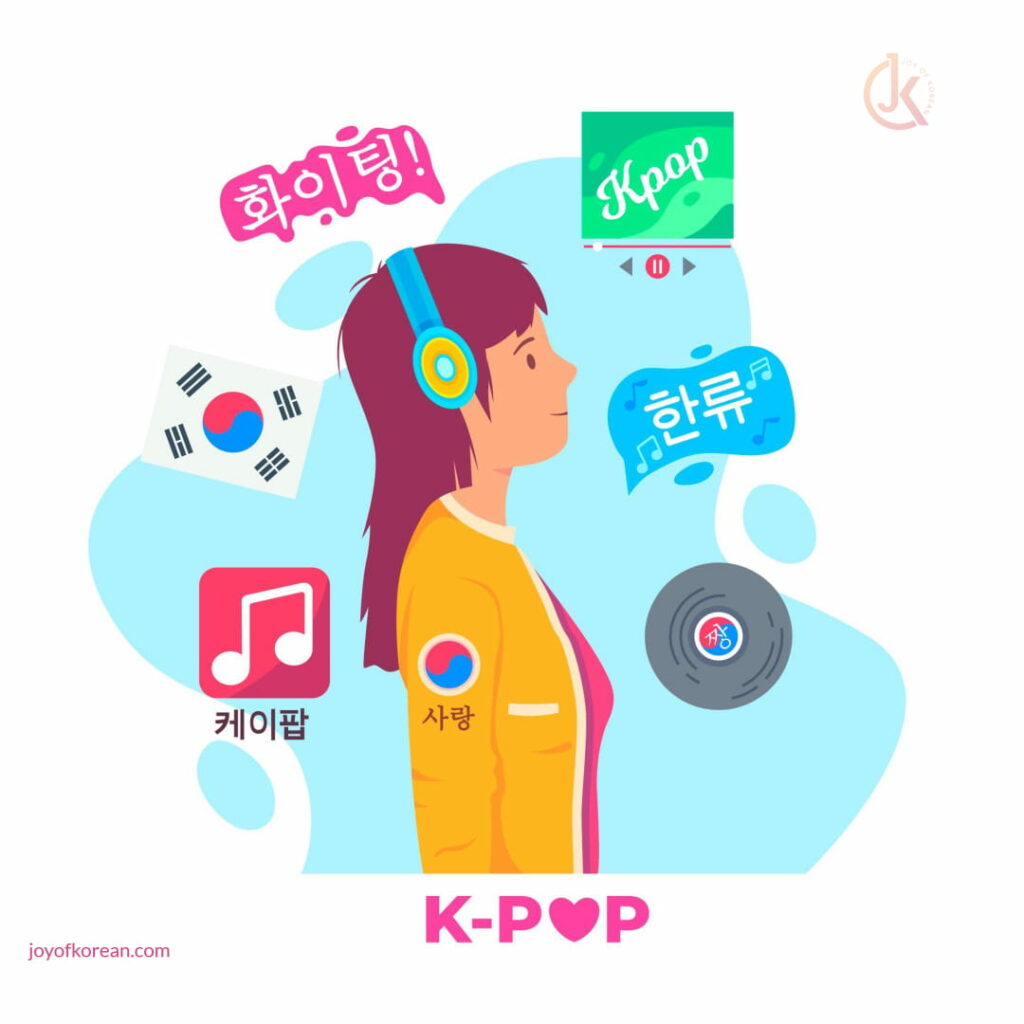Do you want to study the Korean language? If so, you might be asking yourself: How long it takes to learn Korean? Read on!
The cultural elements of Korea have contributed to the growing fame of the Korean language. For instance, the “Hallyu” has inspired fans from far and wide to study Korean.
The dream of higher education in Korea, scholarship, hobby, and career prospects are some added benefits to explore deep into everything Korean.
Every student who starts heading towards Korean linguistics asks this at least once. “How long will it really take to learn Korean?”
This is a pretty tricky question.
It is hard to answer since the time needed to study Korean differs from one person to another. Several factors also influence the duration!
But we all deserve the answer. No?
Well, I don’t blame you. It’s an obvious question.
How could we possibly start our journey towards Korean fluency without knowing how much time it will take?
So, setting a reasonable timeline and deadline is a requisite step to the SMART goal.
So, let’s start!
TABLE OF CONTENTS
- Language learning is unquestionably hard
- 6 Factors determines the time to learn Korean
- Conclusion: Time to learn Korean
Language learning is unquestionably hard
Acquiring a tongue does seem exciting and fun. But what people often don’t realize is it’s a life-changing decision.
The process of learning a language is complex, and mastering any language takes time. As far as I know (and I have done plenty of research to reach this conclusion), there is no shortcut.
As per my experience, most underestimate the time frame. Thus, it is better to have realistic expectations about what you can do and time to learn.

It takes years of effort, your learning attitude, and how connected and passionate you are to that very purpose. So every aspect plays an essential role.
Suppose you have some strong motives why you should learn Korean. If so, it will encourage you to persist and overcome whatever challenges it contains.
If you don’t have strong reasons to move forward, you surely will stop at some point. You may find it tough to find time to go over the pending lessons if you do not have a plan and zeal.
You will also quickly get bored and might quit within 3-12 months. You’re not going to learn much of Korean in any case. That’s why a vast majority don’t go beyond the beginner’s level.
Don’t believe me?
Just see the number of people learning Korean. Now, see how many speak really well and can do jobs requiring Korean.
For example, talking with locals as an ESL teacher in Korea. It won’t even be 1%.
Hence, keep a language goal and your inspiration to achieve each time. Let’s discuss this inside out.
6 Factors determines the time to learn Korean
So, to answer your main topic, let’s get into some facts to know how long it takes to actually learn Korean?
The required time depends mainly on a few factors. This covers your passion, language difficulty, mother tongue, Korean proficiency level you want to reach, and of course, how you learn!
Let’s investigate further!

1. Your native language matters
Acquiring a new tongue depends on your native language as well. Thus, the more you are more familiar with your target language, the faster you can learn.
For example, a Korean student will probably take much longer to become fluent in Spanish than someone who is from Brazil or Portugal.
This is because Romance languages, such as Spanish and Portuguese, have a lot in common.
The writing system, geographical closeness, and grammar rules also make a big difference.
That’s why for a Japanese, Mandarin, or even a Hindi speaker, Korean may look a bit more straightforward.
But don’t take it as an important factor since Korean is a language isolate as per research.
This means it has no relationship to any known language or language family. So, knowing any tongue doesn’t help in studying Korean that much.
There are some relations between Korean and other languages, but don’t count them as significant. In the end, you have to learn from ground zero and put lots of effort into reaching the top floor.
The length of time also depends on your previous experience with languages. When you learn your first language that differs from your mother tongue, you also understand how to acquire a language.
2. Language difficulty
Although all languages are difficult to some extent, they are not all equally hard to learn. Some are more complicated than others.
The most popular and known research is from the FSI, the US Foreign Service Institute.
The study is from English speakers’ perspectives. They have four groups of easy and challenging languages. They also gave a specific timeline for learning Korean.
According to the research of the FSI, Korean, unfortunately, comes under “Super-hard languages” category IV for native English speakers.
Hence, the result of mastering Korean, at least to TOPIK level V or advanced KLAT, would take around 88 weeks, that is 2,200 hours.

This doesn’t include self-teaching as per their recommended 1:1 ratio of the classroom and self-study. Thus, double the time to 4,400 hours to reach an advanced level.
Not only them, but Korean is also hard for native European (e.g., French, German, Italian) speakers.
But the practice and hard work depend on a student.
Suppose you give more time for the language to settle with the sound and formation. In that case, you will become more observant and learn faster, even if the tongue is tricky.
It becomes a bit easier for those who speak the Indian language as the grammar and structure are somewhat comparable.
As the Korean language follows Subject – Object – Verb formation, Indian languages follow the same.
This is precisely the opposite of English.
Example:
- English: I ate a hamburger. (SVO)
- Korean & Hindi: I hamburger ate. (SOV)
Learning Hangeul
Learning the script is the first step for any language acquisition process. For some, it is painful. And form some well… pretty easy.
Talking about Korean, it is the easiest and phonetic of the three most popular East Asia languages, Chinese, Japanese and Korean. It is consistent and easy to understand.
The ‘Hangul’ is only used in South Korea. In North Korea, the same is ‘Chosŏngŭl.’ Despite some variations, they are relatively small and can be ironed out very quickly.

But as a learner myself, I can assure you that the double consonants and pronunciations later become bothersome. Most people, like teachers, don’t even explain this on the internet.
3. Your surrounding
The immersion technique is effective. And that’s why living in the place where you are acquiring the language helps a lot. Yet, I am aware not everybody can afford to live in South Korea.
As the pandemic arose, it brought chaos. But human beings adapted it and got used to online platforms for meetings, schoolings, jobs, etc.
We can consider online language exchange sessions. You don’t exactly need to live in Korea to learn Korean.
Doing video or voice calls with your language partner can bring a tremendous change in your speaking skills.
Some websites and apps you can find with such facilities are HelloTalk, Tandem, and personal tutors on Italki, Verbly, Preply, etc.
Residing in a country of your target language is always considered being the best language learning method.
But again, if you are not willing to converse, nothing could be helpful.
But if you’re at it, you will indeed find people with whom you can practice. So just be proactive and find like-minded learners in the age of the ever-connected world.
4. Your learning resources
Textbooks are the first thing any Korean learner searches. However, when it comes to Korean, the students are really blessed with fresh and new material.
No matter when you are starting to study, you will find incredible resources online. From audio and video lessons to podcasts and e-books, the list is infinite.

Some of them are famous websites like Talk to me In Korean, 90 days Korean, Korean class 101, and many YouTube channels like Spongemind, Motivate Korean, and much more like these.
Study materials are available in bunches, but the thing is that you need to get involved with the language and the culture.
Textbooks have grammar, but talking in front of either your teacher and friend would help you learn even faster, better, and more enjoyable.
A language school or a teacher can provide the best instruction in Korean. So, go for it if possible for you.
This will let you know what words you can use and where. Plus, systematic study, doubt-clearing sessions, interaction, and their experience make it valuable.
As textbooks and even online dictionaries show the translation of You as 너 (Neo) and 당신 (Dang-shin).
But, if you address this to any Korean, it will offend them.
너 (Neo) is valid only in 반말 (informal form), only with the people you are close with. Not even with your parents.
당신 is always shown in dictionaries as a formal way of saying You. Rather, it is not. You can only hear this word in any old, middle-aged couple’s conversation.
It, of course, can confuse you as a student. Therefore, as in many dramas, you can see 당신 frequently. One such example is Hotel Del Luna.
But avoid using it. You can just call people by their designation. Like, 선생님 (Seong-seam-Nim) is a teacher, 사장님 (Se-Jang-Nim) is a boss, etc.
Or you can also add 씨 (Sshi) & 님 (Nim) in front of anybody’s name to make it sound formal and respected.
5. Making use of Korean entertainment content
K-dramas and K-pop are the root cause of the Korean wave. So, it’s necessary to watch them not only for entertainment purposes but for learning as well.
Especially when it comes to Korean entertainment, variety shows like Knowing Brothers, Running Man, The Return of Superman, and many more.
But what makes Asian TV shows different from others is their editing.
You can see many idioms and phrases from it and even note it down.
They even take close-up shots of their casts’ reaction to simple moments, like 긴장 (Kin-Jang) is Nervous, 민망 (Min-Mang) is Embarrassed, 걱정 (Kheog-Jeong) is Worried, etc.
Time to lose yourself in the world of beautiful dramas to learn Korean is now!
Viki and Netflix are both there to help you with their Korean subtitle feature.
To give you an example, GOT7, a K-pop boy band, has a total of seven members, and three of them are foreigners.
So, they are bound to make mistakes while speaking Korean sometimes.
Like NCT, another boy group, which has 23 members, and 13 of them are foreigners.
So, if you watch these bands’ shows, you will discover many things without even realizing it, and laughs would be a plus factor.
In GOT7’s Hard Carry, people got to know the correct word and pronunciation of 귤 (Gyul), meaning Tangerine.
Jackson, a Chinese member of the group, kept pronouncing it as 규르 (Gyu-leu), confusing the other native Korean member.
He later learned it, but it was fun and a learning moment altogether, indeed.

One more thing that helps make your Korean improve faster is listening to your favorite celebrities’ interviews repeatedly.
Listening to them without subtitles helps you understand how the sentences are structured.
This activity makes your listening better, and your speaking skills will improve even more.
South Korea makes some of the best and highly rated flicks. If you enjoy watching films, you can get closer to your language goal. There are plenty of good movies to help you learn Korean.
So, don’t just use them for pleasure expectations. But take advantage of them. Learn from them. Easy and Effective!
6. Positive attitude and correct approach
Learning anything has to have a correct attitude and approach towards it. If you think you will not get anything from your target lingo, maybe you won’t proceed.
In language learning, sometimes breaks are necessary. So even if you don’t understand a grammar pattern, take a break.
In Korean especially, topic (은/는) and subject (이/가) markers are troublesome.
So, whether taking a pause or just continuing your studies without stressing yourself are the only two options.
It’s because understanding this concept takes a while. And you have to spend time with the language while observing it to absorb the use of it.
Also, many students follow the routine of mugging up 10-30 words each day. But, again, this depends on your own capacity.
But learning just any words each day is never is a good option. If those terms are not associated with your life, how is it going to help you?
You will eventually forget it.
If you learn Religion or Politics vocabularies, the needful terms for your daily life are Pen or Laptop.
Then what do you think is more important?
Of course, 펜 (Phen – Pen) & 노트북 (No-Theu-Bhug – Laptop).
So, just don’t learn unnecessary vocabulary at the beginning stage. Know only when it is helpful.
Try not to get frustrated.
Languages and are connected to the culture, so there will be some things you won’t understand only with your linguistic ability.
Either find a teacher or friend or google search about the topic. It’s just another advantage of human translators over AI translators, ’cause they can’t understand the culture.
Conclusion: Time to learn Korean
Korean is, without any doubt, a complex language to learn for an English speaker. But, more than complexity, it is time-consuming.
Just see how children learn a new language. They absorb through interaction all the time.
As long as it’s within kids’ reach, a language problem doesn’t matter to them. In fact, they are not even aware of that until they become semi-fluent.
Yes, it takes an extended period to learn, but that is how they master any language. Time and consistency, that’s it! If it made sense, it makes sense!
With the proper method, persistence, desire, and motivation, you can do the same. This isn’t rocket science!
It is not the number of hours you practice but how regularly you want to link with the Korean language that matters more in the end. The right strategy and guidance are just the icing on the cake!

How many hours a day should you study Korean?
That is pretty subjective and depends on your commitment, schedule, and aim.
Like if you just want to study it as a hobby, 15-20 minutes is enough. In 6 months, you can hold a few minutes of conversations, and you can easily read plenty of texts.
What if you need the EPS-TOPIK score for the work permit? Then, 1 year of study will suffice, depending on your target level.
If you can only put in 30 minutes a day, so be it. You may reach an intermediate level in 5 years, or perhaps more.
But, on the other hand, if you are serious and want to achieve something fast, give it more time every day/week.
Like, 1-2 hours daily or 5-10 hours weekly will cut the journey into 2 years. But the main point is don’t give up midway. And one day, you will get there like every successful learner.
If you follow all these steps and are ready to put in your efforts, you sure will be good in no time.
How long it takes to learn Korean fluently?
What does fluency mean?
It takes into account two aspects: ease and accuracy.
Fluently doesn’t always mean perfect, but comfortable with a few errors. The Korean experts are fluent but remember, even they also don’t know everything.
As per my interaction with many Korean teachers, specialists, research, and learners, fluency in Korean takes a freaking long time.
The average time to learn Korean may differ depending on the level you wish to acquire, your approach, and the time you spend.
Your progress may take more if you are doing everything yourself.
You will be able to get the fluency or advanced level in 3-5 years. This is what you need to explore career options in Korean, such as translator or interpreter.
After all, language learning is a lifetime process. We don’t even know everything about our native language either.
However, to hold a conversation and day-to-day communication in Korean doesn’t take that long. You can make it happen in a few months!
Just focus on quality and not just quantity! Think Pareto principle — 80% of outputs (results) come from our 20% inputs (causes).
So, relax and study! If you have the interest and purpose, any language is within your reach. Korean is no different!
Thanks for reading. I hope you enjoyed this post. Share your views in the comment section below.











